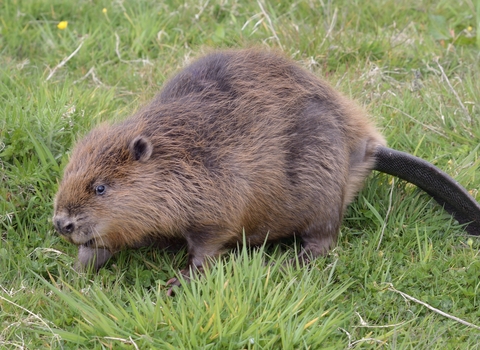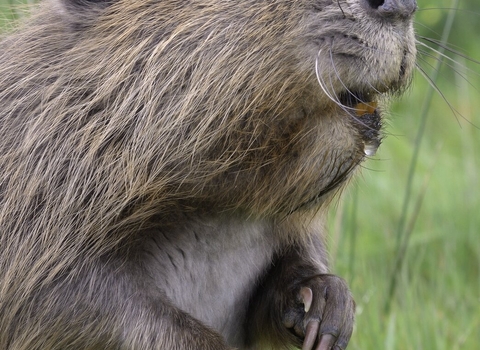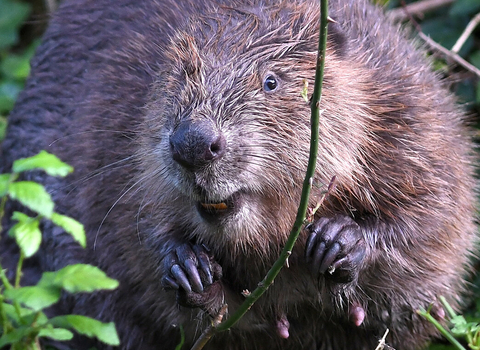Why beavers?
While this is about the recovery of a native species, it isn't just about that - it's also about the recovery of an entire ecosystem and all the natural processes and other species that benefit from beavers being present.
Beavers are a native keystone species, which means they play a crucial role in regulating and balancing natural processes, maintaining healthy habitats, and supporting other species that depend on those habitats. The impressive and ever-growing body of independent scientific evidence reveals the vast array of environmental and social benefits that beavers can bring.
These include:
- Improved water quality: Beaver dams slow and filter water, causing sediment and nutrients to be deposited in ponds. This improves the quality of water flowing from sites where beavers are present.
- A more stable water table: The dams, ponds and channels created by beavers can result in water being released more slowly during heavy rainfall reducing flooding downstream, more water being available for crops and livestock during times of drought, and increased protection against wildfires.
- Carbon capture: Beaver wetlands capture carbon, locked up in dams, boggy vegetation, and wet woodlands.
- More wildlife: Beavers create diverse wetland habitats that can provide a home for a wide range of wildlife, especially aquatic invertebrates which act as a food source for other species.
- Reconnecting people with wildlife: People are fascinated by beavers. Through the wide range of species and processes beavers impact, they also offer an opportunity to engage people with nature recovery and climate adaptation more broadly. This can be through lucky chance encounters or more formal opportunities such as school lessons or guided walks and talks.
- Business diversification and resilience: At a time when land managers, farmers and businesses are under increasing pressure due to climate change and extreme weather events, high prices, and changing government policies, beavers offer an opportunity for business diversification through, for example, eco-tourism or access to certain agri-environment schemes.
Beaver benefits
The evidence of the positive impacts is so strong, the Environment Agency has added beavers in their management guides as a “measure” that could help with river and floodplain management. Read more about other research on the social and environmental impacts of beaver recovery here and the government’s approach to beaver recovery here.
The Farming & Wildlife Advisory Group SouthWest (FWAG SW), with funding from the Somerset Rivers Authority (SRA), commissioned Somerset Wildlife Trust to produce a report that would help local people and businesses capitalise on the benefits that co-existence with beavers could bring and offer guidance on how potential challenges could be overcome. Read the document here.
In short, beavers create thriving ecosystems that put people and nature firmly back on the road to recovery. The Wildlife Trusts and a range of other governmental and arms-length bodies and eNGOs believe that beavers should be an integral part of a green recovery.
You can help us by:
- Creating and maintaining healthy riparian buffer strips and clean water courses
- Recording sightings of beavers and their field signs through Mammal Mapper and Somerset Environmental Records Centre
- Speaking with a licenced beaver practitioner if you have a query or want advice.








